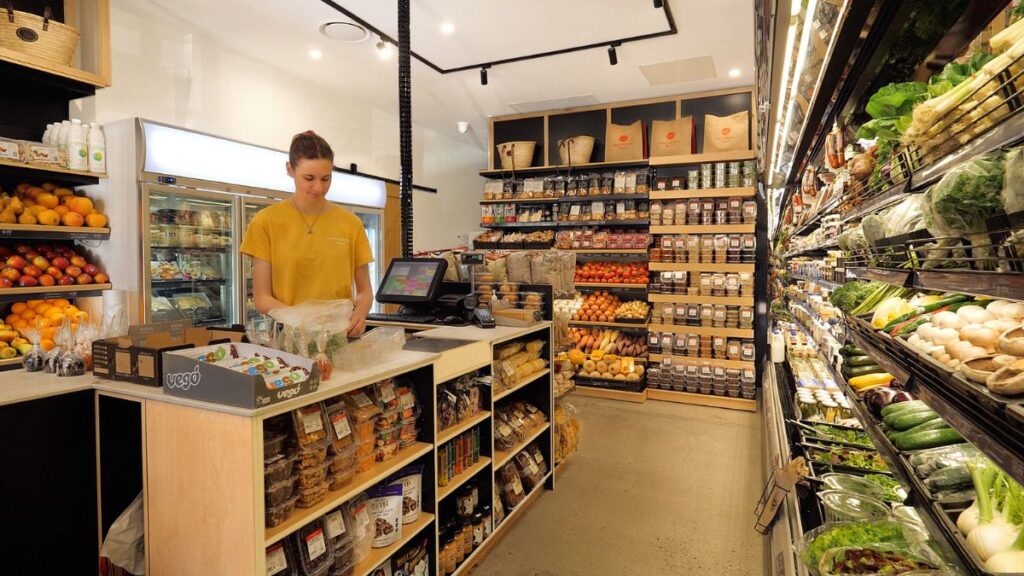Melbourne hums differently depending on where you walk. The hush of a laneway café at 8 am. The slap of tram doors opening on Bourke Street. The gold-tiled glow of the Block Arcade. Each space has its own character. Each shop has its own rhythm. And the funny thing? Most of that character doesn’t come from what they’re selling. It comes from the bones of the place—the design, the flow, the little touches that don’t shout but shape your experience.
That’s the invisible hand of Shop Fitouts.
The Café with the Crooked Shelf
There’s a café in Carlton with a crooked timber shelf above the counter. It’s stacked with jars of beans and half-dead plants. It shouldn’t work. But it does. The shelf was part of a fitout years ago, designed to look effortless—like someone just plonked it there. Customers comment on it all the time. They remember it. Some even photograph it.
That’s the point. Shop Fitouts don’t always scream perfection. Sometimes they lean into quirks. They make you feel at ease, like the space has been lived in.
A Stage for the Shoes
Walk into a sneaker shop on Chapel Street and the vibe couldn’t be more different. Lights blaze down like spotlights on centre stage. The shoes aren’t just displayed—they’re elevated, each pair sitting proud like an artwork.
It’s theatre. And it works. Because the fitout knows exactly what it’s doing: turning everyday products into trophies. That’s what the best Shop Fitouts do—they transform objects into experiences.
Melbourne’s Mixed Personality
This city has layers. Grand, historic arcades with mosaic floors, and just a block away, gritty laneways with peeling posters and neon signs. Retailers have to work within that backdrop, and the ones that thrive know how to make their spaces talk back.
That’s why Shop Fitouts in Melbourne often feel so distinctive. They’re not cut-and-paste. They’re built to play off the streets around them. A Fitzroy record shop might lean into exposed brick and graffiti-style murals. A luxury jeweller on Collins Street needs clean lines, velvet-lined cases, and lighting that glitters just right.
The fitout isn’t decoration—it’s context.
The Subtle Choreography
Here’s something I only learned after chatting with a designer friend: nothing in a shop is random. The width of aisles. The way shelves pull you forward. The lighting that makes you notice one product and ignore another. It’s all intentional.
Shop Fitouts choreograph movement. Not forcefully—just subtle nudges. Like a gentle hand on your shoulder guiding you around the room. You don’t feel controlled. You just feel… comfortable. And comfortable customers stick around.
When the Space Becomes the Brand
Some shops blur the line between what they sell and who they are. Think of an Apple store—wide, clean, minimalist. Or a soap shop where the smell hits you before you’re even inside. That’s branding stitched into the fitout itself.
In Melbourne, smaller shops use this trick to punch above their weight. A boutique florist with recycled timber counters and mismatched vases says, “We’re natural, we’re local, we’re different.” That story isn’t written on a sign. It’s built into the design.
This is why Shop Fitouts matter more than people realise—they’re branding you can walk through.
The Green Shift
Another shift happening quietly: sustainability. Reclaimed wood, LED lighting, low-VOC paints. It’s not just about being eco-friendly—it’s about showing values. A store with a sustainable fitout sends a message before anyone speaks.
And Melbourne customers? They notice. Many want to align their wallets with their beliefs. Which means Shop Fitouts that lean green aren’t just trendy—they’re strategic.
The DIY Trap
Of course, plenty of shop owners try to save money with a DIY approach. A lick of paint, some shelves from the hardware store. It works, for a while. But you can feel it. Customers can too. Something’s off—the flow, the light, the way the counter sits too high or too low.
Professional Shop Fitouts catch these details before they trip you up. They think about how the space breathes when it’s busy, how staff move behind counters, where customers naturally pause. It’s not about fancy finishes. It’s about making the invisible work seamlessly.
Built for Now, Ready for Later
Trends change. Stock changes. The city itself changes. Smart fitouts don’t lock you into one moment. They leave breathing room. Movable shelves. Flexible lighting. Modular counters.
The smartest Shop Fitouts know this: today’s shop has to survive tomorrow’s surprises.
Walking Out with More Than You Came For
Here’s the thing. Most customers never think about fitouts. They just know they liked a space—or they didn’t. They remember how it made them feel. And that feeling decides whether they come back.
So next time you wander into a store and find yourself staying longer than you planned, maybe even buying something you didn’t expect—stop for a second. Look around. Notice the way the light draws you in, the ease of the layout, the quiet charm of the details.
That’s the magic of Shop Fitouts from Juma Projects. They’re not just about selling products. They’re about creating memories in brick, timber, and light. The spaces we step into, and the stories we take away with us.






